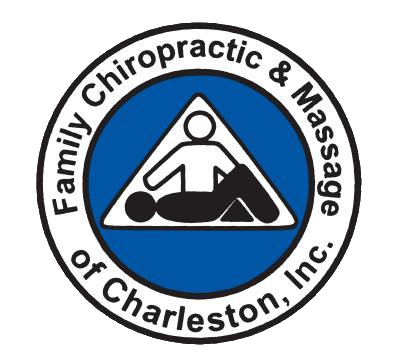Welcome to the Family Chiropractic & Massage blog! Here, we will discuss anything and everything that has to do with chiropractic care and wellness. We will share helpful information and hopefully answer any questions you have through our articles. We are a chiropractic clinic that began in 1997 and has since grown to locations in North Charleston, Summerville, and Moncks Corner, South Carolina. We are dedicated to providing tailored care and treatment with traditional and new techniques to help our patients reach their wellness goals. We treat a variety of conditions including neck pain, back pain, injuries, sciatica, scoliosis, and more. Besides chiropractic care, we also offer physiotherapeutic care, rehabilitative care, and massage therapy. Our licensed massage therapists offer all types of massage from deep tissue to compression massage and more. We are strong believers in natural healing! Check out our website to find out more information about the services and care we offer, and contact us today to schedule an appointment with our experienced doctors!
What is Carpal Tunnel Syndrome?
Today, we’ll be discussing carpal tunnel syndrome, a condition that affects approximately 3 to 6 percent of adults in the United States. Carpal tunnel syndrome is the compression of the median nerve as it passes into the hand. Located on the underside, or palm side, of your hand, the median nerve provides sensation, or the ability to feel to your thumb, index finger, long finger, and part of the ring finger. It also supplies impulse to the muscle going to the thumb and provides motor functions to the forearm, wrist, and hand. Carpal tunnel syndrome is one of the most common conditions that affect the median nerve. This is generally caused by swelling of tissue inside the wrist that puts pressure on the nerve. This compression can cause pain, tingling, and numbness.
How Does Carpal Tunnel Syndrome Develop?
Swelling of tissue inside the wrist can be caused by excess pressure in your wrist and on the median nerve. The most common cause of this is an underlying condition that causes swelling in the wrist. Diabetes, thyroid dysfunction, fluid retention from pregnancy or menopause, high blood pressure, autoimmune disorders such as rheumatoid arthritis, and fractures or trauma to the wrist are all underlying conditions that can contribute to carpal tunnel syndrome. If the wrist is overextended repeatedly, carpal tunnel syndrome can worsen. Repeated movements such as typing can contribute to the swelling and compression of the nerve. Although there is no distinct cause of carpal tunnel syndrome, research has identified factors that can play a role in the development of the condition. Some potential causes of carpal tunnel syndrome include frequent grasping movements with the hands such as in certain sports or a family history of carpal tunnel syndrome. Being overweight can also put you more at risk for carpal tunnel syndrome. This condition is three times more common in women than men, and the dominant hand is usually affected first. Certain occupations such as office work, assembly line manufacturing, cleaning, and food processing can increase the risk of carpal tunnel syndrome, due to the repetitive strain on the hands and wrist. Typically, no single cause can be determined.
The most common symptoms of this condition include:
- Numbness, pain, or tingling in one or both of the hands
- A “pins and needles” feeling in the fingers
- Burning or tingling in the fingers
- Pain or numbness that is worse at night and interferes with sleep
- Weakness in the muscles of the hand
Be aware that these symptoms can be similar to other conditions, so it is important to consult with your doctor for a proper diagnosis. To diagnose carpal tunnel syndrome, your healthcare provider will perform a physical exam and may recommend nerve conduction studies or electrodiagnostic tests on your nerves. Nerve conduction studies measure the speed of your nerve impulses, and electrodiagnostic tests stimulate the muscles and nerves in your hand to see how well they work. Diagnostic ultrasonography and MRI have also been used to diagnose carpal tunnel syndrome. They can identify abnormalities of the tunnel wall and determine why the median nerve is being compressed, ruling out other conditions.
Treatments for Carpal Tunnel Syndrome
Treatment for carpal tunnel syndrome will vary depending on factors such as your age, overall health and medical history, how severe your pain is, and your preference of treatment. Surgery may be necessary if there is severe damage to your median nerve. Carpal tunnel release is one of the most common surgical procedures in the United States. Nonsurgical options may include wrist splints that hold your hand in a neutral position, anti-inflammatory medications, or steroid injections into the carpal tunnel area to reduce inflammation. Stretching and strengthening exercises are also great options. Simple and quick exercises can be done just about anywhere, whether you are at your desk at work or walking to your car. One exercise involves simply shaking your hands as if you have just washed them and are trying to dry them. Doing this for a minute or two every hour or so can prevent the median nerve from getting cramped or pinched during the day. Yoga has also proven to be effective among people with carpal tunnel syndrome, reducing pain and improving grip strength. You can also apply cold packs, or simply ice, to the area as needed.
Another natural and nonsurgical option is chiropractic care! Joint manipulation, soft-tissue mobilization and massages can be helpful. Mobilizing the carpal tunnel area can reduce pressure on the median nerve. Sometimes even spine manipulation can be beneficial, as a misalignment of the back or neck can cause this condition in some cases. Chiropractors may also suggest specific exercises as well as a nutritional program to promote overall wellness. Chiropractic treatment, along with physical therapy, stretching, and other exercises can alleviate and possibly eliminate carpal tunnel syndrome completely.
Ways to Prevent Carpal Tunnel Syndrome
There are steps you can take to prevent carpal tunnel syndrome:
- Make lifestyle changes where necessary. If you work in an office job where you are typing at a computer all day, make sure to take breaks and stretch out your wrists. It is also important to make sure your hands are positioned properly on your keyboard. Your wrists should be kept straight, and should not rest on your desk while typing.
- Be aware of your overall posture: while using a computer, keep your monitor at eye level and make sure you are supporting your back, rather than slouching. Investing in an ergonomic office chair can make a big difference. Change hand positions often while you are working.
- Consider getting a wrist rest, or a mousepad with a built-in rest. They support a neutral hand position and provide support for the forearm.
- If you have conditions such as diabetes, high blood pressure, or arthritis, seeking treatment can reduce your risk of developing carpal tunnel syndrome.
- Avoid sleeping on your hands. It may be tempting to put your hand beneath your head when you sleep, but this can increase the risk. Pay attention to your hand positions when you get in bed.
- Try to relax your grip or change the way you hold certain objects such as a pen or your cell phone. Consider getting a pen with a soft grip, or a stand for your phone.
- Make sure any task you are doing is being done with your arms comfortably away from your body. This includes looking at your cell phone.
Carpal Tunnel Syndrome is treatable, and it’s best to treat it as early as possible to prevent further nerve damage and increased pain. Although the risk is low, this condition can lead to permanent nerve damage, disability, and even loss of hand function if left untreated. With proper treatment such as lifestyle changes and physical therapy, your symptoms can be significantly improved and even eliminated. We hope you found this article informative. Here at Family Chiropractic & Massage, we have doctors who have studied a variety of chiropractic techniques to render care to patients with different types of conditions. As people vary, so do the techniques chosen to help each patient get well. We use evidence-based treatment methods to help patients get better faster. If you are suffering from carpal tunnel syndrome, contact us today to set up an appointment so we can assess your needs and create an effective treatment plan. One of our experienced doctors would love to help get you on the track to living a healthy, pain-free life! Thank you for reading, and we hope you’ll check back for more articles about chiropractic care and all it has to offer!


Recent Comments